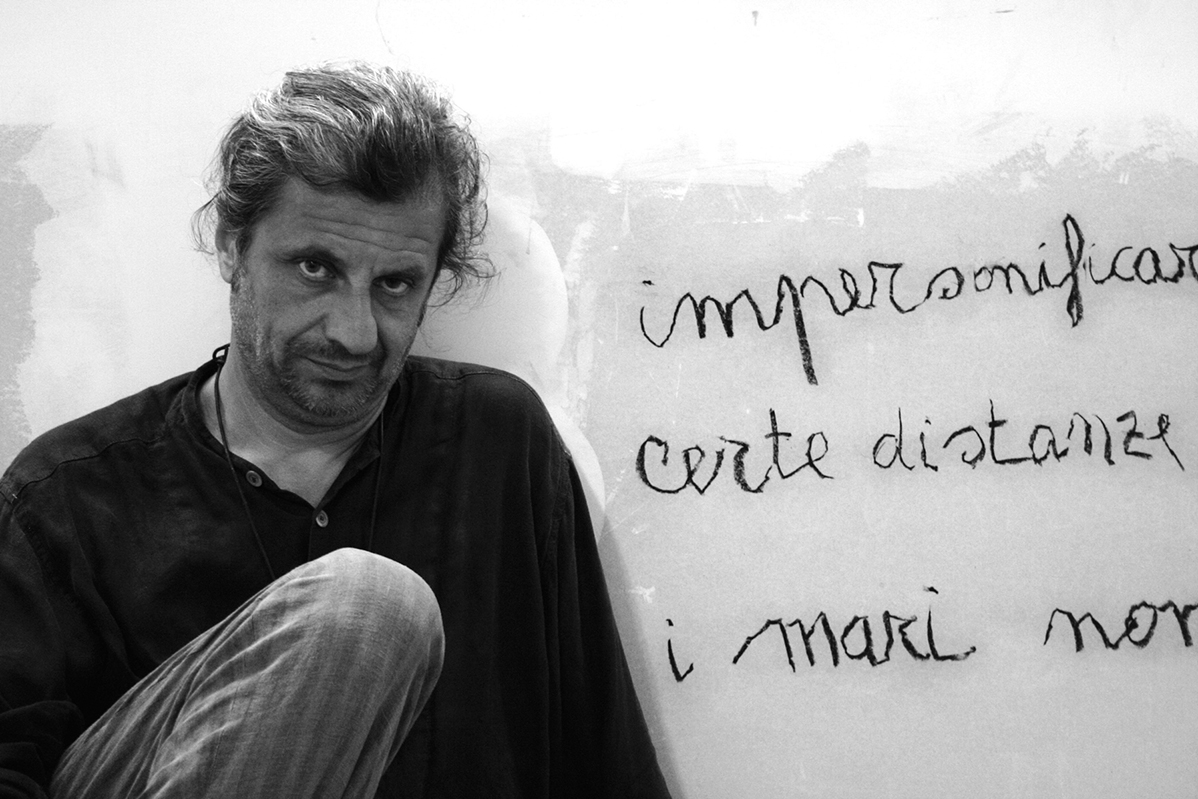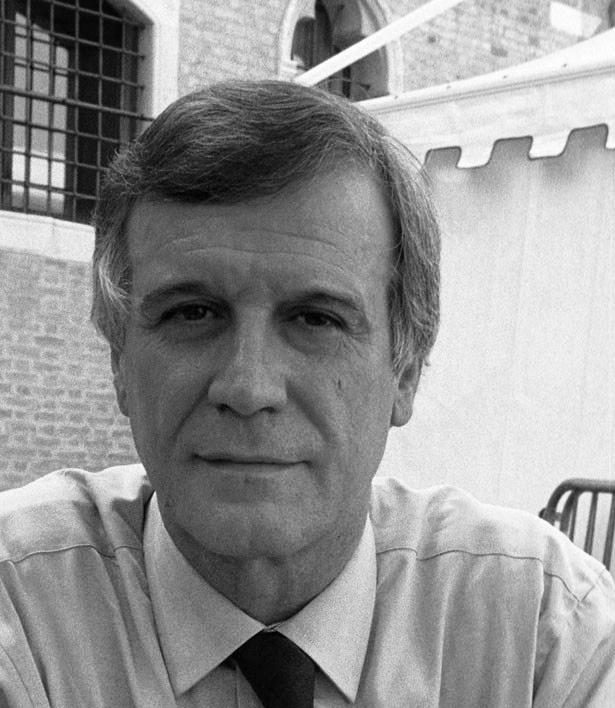Search for articles, topics or more
browse by topics

Search for articles, topics or more

A prolific and very individual author and actor, Alessandro Bergonzoni, has written 12 plays, numerous books, participated in radio shows and publications.
Aldo Bonomi is a sociologist. An acute and refined observer of current transformations in the Italian socio-economic system, he founded and directs the Consorzio AASTER, he is the editor of the magazine “Communitas” and writes the column Microcosmi for “Il Sole 24 Ore”.
Sandro Bergonzoni takes us on a journey in reverse gear when we ask him what quality means and what it means for him. I arrived imagining we would speak about words, and we ended up speaking about ethics, essence, even soul. And in the end, necessity.
He is clear from the start. If I had to write a definition for a dictionary, I would remove from the word quality the q, th u, the a, the l, the i, the t and the y and I’d go and look for other letters, I’d invert its alphabet. I’d put: we ask our readers to forgive us, we are renovating the concept of quality. Our interview takes place in his studio.
A large loft filled with his voice but also an infinity of objects: sketches and drawings of his artistic work, finished works, works in progress. And the sediment of an industrial business, the one which his father set up. Pieces which enter and exit his works, which have become part of a grammar living in his words and his hands. Intelligence in the hands, craft in the eye. All this craftsmanship is not born of itself, but of an interior and ulterior quality. So this is the point: quality has to do with ethics, for this inevitably it needs to be rewritten. Or better, to return to its roots. Which are also the origins of the species, or at least its being part of a social body. Bergonzoni surprises me, he doesn’t play with words, he takes the subject seriously, straight away.

Quality could be a cultural event, a happening, a need and almost an essence. But I doubt that in these times we can talk of the quality of time, that we can distract it for a moment from the concept of production. Not that I hate the concept of production, I just hate the alone. Today the word quality has become simply an adjective, and this for me is the cause of its devastation.
I’d like to speak about quality as something to constantly search for, something constantly in motion. And it depends on your interior quality that you don’t just receive its advantages but also its messages.
Quality could be a cultural event, a happening, a need and almost an essence. But I doubt that in these times we can talk of the quality of time, that we can distract it for a moment from the concept of production. Not that I hate the concept of production, I just hate the alone. Today the word quality has become simply an adjective, and this for me is the cause of its devastation. I’d like to do something more destabilising, I’d like to speak about quality as something to constantly search for, something constantly in motion. And it depends on your interior quality that you don’t just receive its advantages but also its messages. I’d like this word to have other significance: anthropological, intellectual, I would almost say spiritual. That’s the point, quality cannot be applied, it comes first. I’d recall the theme of quality over and above the object it refers to. Quality as a starting point, as a birth, as an origin, as a source. Not just the quality to be obtained: a good product, a good show, book, opera, car, sofa.
So I ask myself: what is the quality that moves you?
First of all there are the qualities of man, then those of the product. A quality of intelligence which comes before the object it presents even if it then introduces it. When we speak about a painting, a sculpture, an opera, a play. The theme of quality is too often linked to the idea “trust me”, to faith, to “you can’t go wrong”, rather than “you can be sure of us”. It’s also a need.
We can’t just stop at the design of the word, with respect to design. We need to go to the essence. An industrial entrepeneur cannot be a person who limits himself to sponsoring art, to helping it. Culture is a source of energy, with which to establish a relationship. Affection is needed between product and culture, affection and not affectation or infatuation. When we speak about Italian production we always speak about the PIL and only then about art, culture.
There is never any measuring of the INTERIOR product, only of the gross. He takes us on a journey with no shortcuts: we have to start out from quality at the origins to reach product quality. A difficult journey which he himself undertook when he started writing with the left hand. It meant going back the elementary, not in the sense of elementary school, but in the sense of element. A return to the first time to find a distance, to move away. Something that makes us primitive and gives a lot more meaning, not taking anything for granted. It’s our turn now. We have to go back the soul of terms, not to their fluorescence, we mustn’t stop at the outside skin.
We are using the scalpel as a shoe horn. The scalpel is for sculpting, but we are using it for other things, perhaps entertaining, pretty, ironic. Not everything can be a parody of life. Quality is something to take seriously, very seriously, at the risk of sounding too serious. I’m speaking about something big, immense, and enormous. It should be a synonym of greatness, but it is a synonym of security, trust. Today the humble have become myths, I mean that humble people are the legends of today. You can’t reassure people about the idea of a product if you don’t have clear the idea of its soul. Quite apart from its usefulness or the wellbeing it brings. Always: whether we are speaking about furniture, homes or cars.
Aldo Bonomi how is the concept of quality changing?
The concept of quality is changing. We are witnessing a groundbreaking transition, from the chain logic of production and economic values based on the capital/ work relationship, to the web of values which means inserting quality into a wider process. It’s the move from Fordism to post Fordism, from the economy of nations to the global economy. Whoever wants to set up a production business must now know how to incorporate the final client’s central role into the web of value, which is ever more going beyond the walls of business.
The idea of quality is in new territory: knowing how to interpret signs, meanings and the sense of being a consumer. In these dynamics those who tend to make it are the businesses with long nets, and so from Mantua tapestry to the car, craftsmanship has become the condition necessary, but no longer sufficient by itself, for competition. This concept has overturned both mass and quality production, and means knowing how to conceive mental prototypes is a must. I see a new figure, the com-craftsman, where com is the ability to sell as well as produce with innovation, and also stands for .com, which means following flows and new forms of sales. And then again for communication, indispensable for positioning any type of product or service on the market of relationships. And finally for community, a fundamental anchor, whatever the community of reference, from global to national to temporary born of single designs.
All brands, including the luxury ones, must measure themselves against the necessity to intercept the consumactor, who is not a consumer of goods but an actor in the world of personalised consumerism.
What complexities does the current crisis bring to the idea of quality?
Let’s start with a fact: capitalism is in crisis. We have seen the oil crisis which affected the world of transport; the new economy bubble which put in doubt the ability to remember and relate; this last crisis, with its profound impact, touches our everyday lives, our way of being, consuming on loan. It is a cognitive, anthropological crisis which forces us to rethink the role of people in the world. For this reason overcoming it means a new concept, the green economy, where we produce and consume in the light of quality of life, where good is as central as good looking.

Today luxury is sobriety, it’s values. Rare, avant-garde goods will be those which contain and communicate sobriety: this is the new style, and all goods will have to contain this value. It’s a passage which means that all of a sudden certain businesses and their managers, reference points until a few years ago, are now antiquated. It means ideas of quality and its perception are becoming obsolete, and defines a new leadership. Living in the web of values and the green economy means starting again from the culture of limit and sobriety, but to be credible this transformation must happen initially and with coherence, with the product as protagonist.
What does interpreting expected quality mean for a modern business?
It means changing culture, marketing concepts, quality of consultancy with service industries which incorporate themselves into the business. It means that goods must have added value in terms of communication and representation. The role of human capital is changing too. Capital inside and near the walls is no longer the only one which is central – the fruit of contextualised knowledge which comes from areas and territories, and formal knowledge with high added value – I’m saying that the winner is the one with most soldiers, and the best soldiers. Who are the soldiers? They are the products of informal processes who know how to move, strong in their differing nearness, in global dynamics. They are the people who with their knowledge can watch over the web of values. Figures that start out from many contexts but dominate because they know how to accumulate and multiply the capital of relationships.
The photographer Jeff Burton is known for the cinematic quality of his work: bathers by a hotel pool become a study in saturated colour; tanned bodies are seen at one remove, distorted by mirrored surfaces; a woman’s glance is glimpsed through a car’s rearview mirror.
Lunar New Year is the most important day in China’s lunisolar calendar.
The holidays are a time to eat, drink and make merry – the most convivial time of the year.
Thanks for your registration.